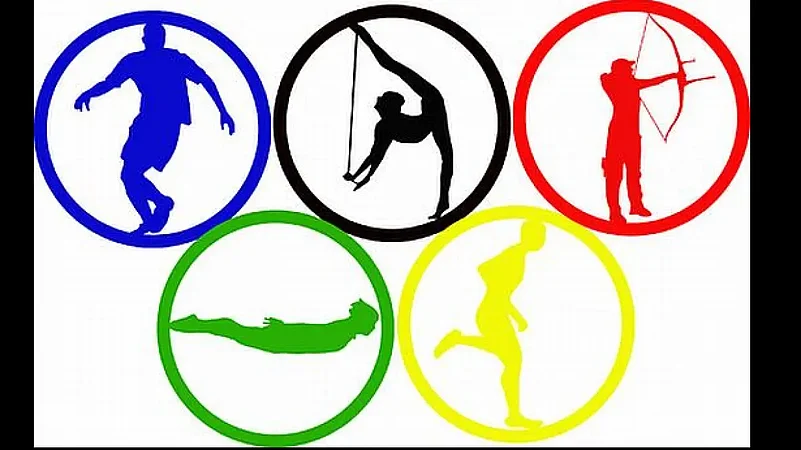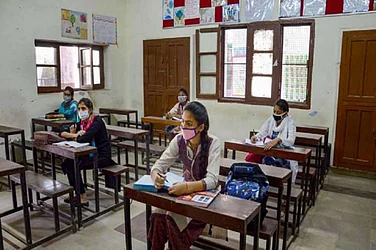At the Tokyo 2020 Olympics, India, home to an estimated 1.4 billion people, could bag just seven medals—one gold, two silver and four bronze—which placed the country in the 48th position. In contrast, with a population less than half of Kerala’s, a country as small as the Netherlands grabbed 36 medals and the seventh spot on the points table.
India’s lag can be attributed to the faulty sporting ecosystem that has still not been developed properly to train and produce world-class athletes.
In an effort to change things and build such an ecosystem, the Delhi government has set up the Delhi Sports University (DSU) with the Delhi Sports School (DSS) under its wing. The residential university is a one-of-its-kind educational and sports-oriented set-up that is intended to train Olympic-level players in India. This would also be Delhi’s first free co-educational school dedicated to sports with “Khel hi Padhai hai” (sports itself is studied) as its motto.
At the helm of the new university is retired Indian weightlifter Karnam Malleswari, the first Indian woman to win an Olympic medal back in 2000 at the Sydney Olympics, as the vice-chancellor.
After the country delivered its personal best at the Olympics with the seven Tokyo Olympics medals, the focus has returned to the need for a robust sports infrastructure. DSU has kicked off that drive.
Need Of The Hour
Talking about the need for such a school, Malleswari highlights the rural-urban gulf which has been prevalent even in sports training in the country. “India is a large and diverse nation, has different states and cultures while the majority of the sports infrastructure and training facilities are in metro cities like Delhi, Mumbai, Bengaluru, Kolkata and Guwahati. Most of the Indian sports champions hail from underprivileged and rural backgrounds who have to struggle in their initial years to avail facilities to eventually reach the international level,” says the Padma Shri award winner.
The university has identified 10 sports that it will let students pick from—archery, athletics, badminton, boxing, swimming, shooting, table tennis, lawn tennis, weightlifting and wrestling.
The institute commenced its online and offline registration for students from across the country in June this year. The school, which will be affiliated with the Delhi Board of School Education, will take in students from VI to IX for the academic year 2022-23 but generally it would admit students from class VI to class XII.
Speaking ruefully about India’s scant talent pool, Malleswari mentions that there is no system in place that will guarantee continuous high performance at international events. “We do not have a talent pool at that level. If one sportsperson does the hard work to win a medal, there is no one behind him/her to replicate the process and replace that sportsperson,” she says.
The VC gives the examples of Assamese sprinter Hima Das who emerged thirty years after legend P.T. Usha and Mirabai Chanu who came 21 years after Malleswari herself won the Olympic medal in weightlifting. “In other, more successful countries, competition is high and they have a strong talent pool which ensures the country performs consistently well, even if some sports persons are unable to,” Malleswari adds.
The Arjuna and Rajiv Gandhi Khel Ratna recipient also points out another lacuna in the country’s sports ecosystem: sports injury management. “Apart from infrastructure and training, India also lacks sports injury management and a dedicated focus on sports science for performance assessment. With Delhi Sports University, we will be targeting all these challenges and a lot more,” she says.
Speaking of infrastructure, the DSU also signed MoUs with the University of East London (UEL) recently to develop, design and maintain the desired, world-class infrastructure for sports.
David Macrory, business development manager for academic partnerships, talent gateway from UEL, says, “We are delighted to work along with the teams of DSU for talent development, curriculum development and design, and most importantly, increasing the participation of women in sports.”













.jpg?auto=format%2Ccompress&fit=max&format=webp&w=376&dpr=2.0)







